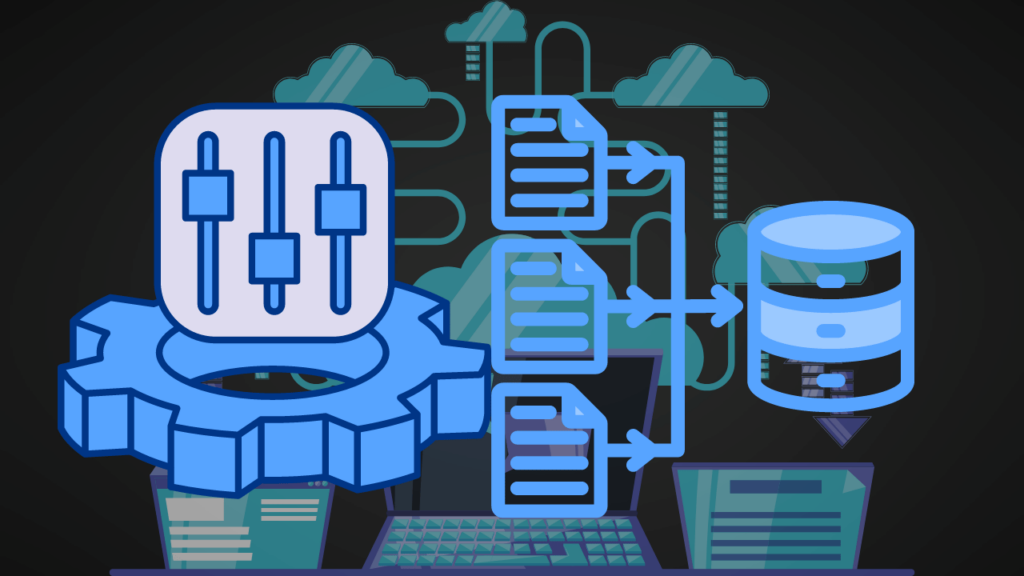- Introduction
- What Is Public Cloud vs Private Cloud?
- Public Cloud
- Private Cloud
- Public Cloud vs Private Cloud
- Private Cloud vs Public Cloud Cost
- Public Cloud vs Private Cloud: Performance and Scalability
- Public vs Private Cloud: Compliance and Regulatory Concerns
- Private vs Public Cloud: Customization and Control
- Hybrid Cloud: The Best of Both Worlds?
- Evaluation of Cloud Security Providers
- Conclusion: Business Cloud Choice
Table Of Content
Discover the fundamental differences between public and private cloud computing. The right cloud choice for your company depends on security, scalability, affordability, and compliance. Compare public and private cloud benefits.
Introduction
Choosing a cloud computing solution for your business requires understanding public and private cloud computing. Both cloud platforms offer perks and downsides, so select one that suits your company’s goals.
Businesses seeking flexibility and cheaper infrastructure costs employ public cloud computing’s scalable, cost-effective resources, which many users share. However, public cloud computing may provide security issues due to resource sharing. Private cloud computing gives one company more protection, control, and flexibility. This approach fits regulatory or performance-driven companies.
We compare the merits, downsides, and use cases of public and private cloud computing. Understanding model capabilities helps you choose scalability or security. Learn how to choose public or private cloud solutions for your business.
What Is Public Cloud vs Private Cloud?
Before comparing public and private cloud computing, clarify these terms.
Public Cloud

Online third-party cloud services, such as AWS, Azure, and GCP, are public clouds. These services let several customers rent space on a massive server infrastructure without constructing and managing data centers. Public cloud computing is affordable and scalable.
Private Cloud

Private cloud computing employs company-specific cloud infrastructure. Hosting on-premises or by a third party gives more infrastructure control than public clouds. Private clouds are more secure and customizable than public clouds, but they cost more.
Public Cloud vs Private Cloud

Public vs. private cloud computing security discussions often center on infrastructure management and security.
- Public Cloud Security
Public cloud providers heavily invest in encryption, multi-factor authentication, and intrusion detection. Concerns exist about shared infrastructure. Other firms’ data storage creates breaches and unauthorized access concerns. Infrastructure management difficulties may complicate regulatory compliance.
- Private Cloud Security
Private cloud security is better than public. Security may be customized, systems monitored, and vital data separated. Private clouds are used in secure industries like healthcare and finance. Unfortunately, private cloud security requires additional resources and expertise, increasing costs.
Private Cloud vs Public Cloud Cost

Comparing private and public cloud computing by cost and control shows security differences.
- Public Cloud Cost-effectiveness
Public clouds provide scalability without upfront expenditures by charging corporations for use. Security is frequently standardized; therefore, organizations may need more critical application controls. Sophisticated security or regulatory compliance may diminish the public cloud’s economic advantages.
- Cost and Security of Private Cloud
Private clouds cost more due to infrastructure investments, on-premises or managed. Finer security control. Businesses may customize firewalls, encryption, and access. Banks and healthcare companies justify private cloud security expenditures by decreasing breaches and compliance risks.
Public Cloud vs Private Cloud : Performance and Scalability

Speed and scalability affect cloud security when comparing public and private cloud computing.
- Public Cloud Scalability and Performance
The public cloud scales nicely. The infrastructure can handle changing demands, making it perfect for dynamic businesses. However, public cloud multi-tenancy may affect performance, and additional user-sharing infrastructure may increase security issues.
- Private Cloud Performance and Scalability
Private clouds provide more consistent performance due to less resource sharing. This customized infrastructure lets businesses tailor security and performance.
Private clouds may need help with scalability since adding resources requires expensive hardware or infrastructure.
Public vs Private Cloud: Compliance and Regulatory Concerns
Public vs. private cloud computing requires compliance, particularly for GDPR- and HIPAA-regulated companies.
- Compliance in Public Cloud
ISO, SOC, and PCI DSS certifications are shared for public cloud services. These certifications must be carefully inspected to fulfill your business’s compliance needs. Public clouds need more security and compliance customization, and the shared environment makes compliance difficult.
- Private Cloud Compliance
Private cloud computing has greater regulatory flexibility. Organizations may tailor security and compliance to legislation. Businesses that require fine-grained data storage and administration should use private clouds.
Private cloud compliance management requires constant oversight and resources.
Private vs Public Cloud: Customization and Control

Another vital cloud security concern is infrastructure customization and control.
- Public Cloud customization
Fixed installations limit flexibility in public cloud systems. Many companies may find this sufficient, but those with unique security needs may need more. Due to provider limits, changing public cloud security features may be challenging.
- Private Cloud customization
Private clouds provide almost complete infrastructure and security. Companies may tailor security to keep, manage, and convey sensitive data to business and regulatory standards. Security-sensitive companies choose private clouds for their flexibility.
Hybrid Cloud: The Best of Both Worlds?

Many companies require advice on choosing public or private cloud computing. A hybrid cloud approach may combine public and private clouds for optimal performance. A hybrid cloud enables companies to store sensitive data in a private cloud and utilize the public cloud for less important functions such as scalability and cost. This method provides security, performance, and cost flexibility but complicates multi-environment administration.
Evaluation of Cloud Security Providers
Consider these aspects while evaluating cloud security providers:
- Reputation, Performance
Select secure cloud providers. Companies handling sensitive data may not want suppliers with frequent security breaches.
- Security Tools and Features
Consider encryption, firewalls, and identity management. Verify the supplier’s security and compliance.
- Certifications of Compliance
Make sure the vendor is industry-qualified. Examples include ISO 27001, HIPAA, and PCI DSS. These standards improve provider security.
- Customization and Flexibility
Does the service offer security settings control? Private and hybrid clouds provide more customization than public clouds.
- Cost concerns
Cost-effectiveness shouldn’t compromise security. Check whether the provider’s security measures are included or if advanced tools cost extra.
Conclusion: Business Cloud Choice

Security, control, and compliance determine your business’s choice of public or private cloud computing. Public clouds provide cost-effectiveness and scalability but less security.
Private clouds are safer but require more expertise. A hybrid cloud combines the benefits of both ecosystems for many organizations. To secure your data and comply with industry rules, you must understand the security implications of any methodology.
